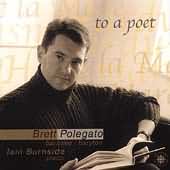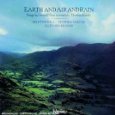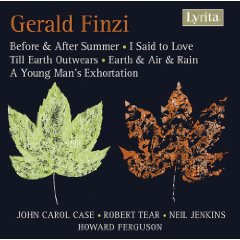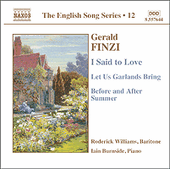Before And After Summer
Poet: Thomas Hardy
Date of poem:
Publication date:
Publisher:
Collection:
History of Poem:
Poem
Content/Meaning of the Poem:
Speaker:
Setting:
Purpose:
Idea or theme:
Style:
Form:
Synthesis:
Published comments about the poem:
✦✼✦✼✦✼✦✼✦✼✦✼✦✼✦✼✦✼✦✼✦✼✦✼✦✼✦✼✦✼✦✼✦✼✦
✦✼✦✼✦✼✦✼✦✼✦✼✦✼✦✼✦✼✦✼✦✼✦✼✦✼✦✼✦✼✦✼✦✼✦
Musical Analysis
Composition date:
Publication date:
Publisher: Boosey & Hawkes - Distributed by Hal Leonard Corporation
Tonality:
Transposition:
Duration:
Meter:
Tempo:
Form:
Rhythm:
Melody:
Texture:
Vocal Range:
Tessitura:
Dynamic Range:
Accompaniment:
Published comments about the music:
Pedagogical Considerations for Voice Students and Instructors:
✦✼✦✼✦✼✦✼✦✼✦✼✦✼✦✼✦✼✦✼✦✼✦✼✦✼✦✼✦✼✦✼✦✼✦
✦✼✦✼✦✼✦✼✦✼✦✼✦✼✦✼✦✼✦✼✦✼✦✼✦✼✦✼✦✼✦✼✦✼✦
| Pitch Analysis | ||||||
|---|---|---|---|---|---|---|
| pitch | stanza 1 |
stanza 2 |
stanza 3 |
stanza 4 |
total | |
highest |
A |
|||||
G |
||||||
F |
||||||
E |
||||||
D |
||||||
middle C |
||||||
B |
||||||
A |
||||||
G |
||||||
F |
||||||
lowest |
E |
|||||
| Rhythm Duration Analysis of Vocal Line | |||||
|---|---|---|---|---|---|
| stanza 1 | stanza 2 | stanza 3 | stanza 4 | total | |
16th note |
|||||
8th note |
|||||
dotted 8th |
|||||
quarter note |
|||||
dotted quarter |
|||||
triplet |
|||||
half note |
|||||
dotted half |
|||||
stanza total |
|||||
✦✼✦✼✦✼✦✼✦✼✦✼✦✼✦✼✦✼✦✼✦✼✦✼✦✼✦✼✦✼✦✼✦✼✦
Audio Recordings
To a Poet |
|
|
|
The Songs of Gerald Finzi to Words by Thomas Hardy
|
|
|
|
Gerald Finzi |
|
|
|
The English Song Series - 12 |
|
|
|
The following are comments by Chia-wei Lee regarding the song set Before and After Summer. Dr. Lee extended permission to post this excerpt from his dissertation on February 16, 2012. His dissertation dated 2003, is entitled:
A Performance Study of Gerald Finzi's Song Cycle
"Before and After Summer"
This excerpt begins on page 52 and concludes on page 57.
ANALYSIS FOR FINZI'S SONG CYCLE "BEFORE AND AFTER SUMMER"
The New Grove Dictionary (2nd Edition) defines a song cycle as "a group of individually complete songs as a unit (aptly described in German as 'zusammendhängender complex'), for solo or ensemble voices with or without instrumental accompaniment. Song cycles can be difficult to distinguish from song collections, which were frequently presented in a planned design." This dictionary explains further that "the term 'song cycle' did not enter lexicography until 1865, in Arrey von Dommer's edition of Koch's Musicalisches Lexikon, but works definable in retrospect as song cycles existed much earlier. The coherence regarded as a necessary attribute of song cycles may derive from the text (a single poet; a story line; a central theme or topic such as love or nature; a unifying mood; poetic form or genre, as in a sonnet or ballad cycle) or from musical procedures (tonal schemes; recurring motifs, passages or entire songs; formal structures); these features may appear singly or in combination."
Schubert's "Die Schöne Müllerin" and Schumann's "FrauenLiebe und Leben" can be treated as song cycles, because they contain texts and musical procedures (key relationship) that relate one song to author. However, since the late nineteenth and early twentieth centuries, the definition of "song cycle" has become blurred. Some composers have assembled various songs together and labeled them in a manner that suggests a cycle without the text on music procedures having a relationship one to the other. This might be said to be the form of Poulenc's "Banalité".
Nevertheless, it has been asked whether Gerald Finzi's song collection "Before and After Summer" should be treated as a song cycle or simply as a song collection. We will examine both the work's text and music to address this question.
Gregg Lauterbach's D.M.A. document, (Lauterbach) "An Interpreter's Guide to Gerald Finzi's Song Cycles for Baritone with Poetry by Thomas Hardy", states that "Before and After Summer" was structured according to Shakespeare's "Seven Ages of Man". Seven characters appear in this song collection (the infant, the schoolboy, the lover, the soldier, the justice, the pantaloon, and second childhood), which begins with a focus on infancy and ends with a focus on old age. Gerald Finzi also used the 'arch' form in the first and last song, the second and ninth relater, etc., to connect each song with the poems.
Here are the keys for "Before and After Summer":
1. Childhood Among the Ferns |
Eb Major-Ab Major-Db Major-Bb minor |
|---|---|
2. Before and After Summer |
Db Major-D Major |
3. The Self-Unseeing |
C Major-A minor |
4. Overlooking the River |
Eb Major-C minor |
5. Channel Firing |
C minor |
6. In the Mind's Eye |
C minor-G minor-D minor |
7. The Too Short Time |
A minor-D minor-D Major |
8. Epeisodia |
G Major |
9. Amabel |
Eb Major |
10. He Abjures Love |
D Major-B minor |
It's very clear that not every song fits in terms of its key relationship to other songs, especially when considering the key relationship between No. 3 and No. 4 and No. 9 and No. 10. This may be because No. 4 and No. 10 were completed in different years, such that the key relationships here are not strong as others.
Although the key relationships in this work are not especially strong, because of its text and music connections, it is my opinion that "Before and After Summer" can be treated as a song cycle (but not a serious song cycle as those by Schubert or Schumann).
In considering the title, "Before and After Summer", we might imagine that summer represents love, before represents eagerness or energy, and after represents doubt, regret or anger. However, a study of the ten poems in "Before and After Summer" reveals that the work is not a simple depiction of the "glory and regret of love". The work connects with the deeper meanings in the poems: it describes the deeper life experience and memories of Thomas Hardy (e.g., those of his childhood, his father, or his wife, Emma). Like Lauterbach, we can identify the similarity between the structure of Finzi's "Before and After Summer" and that of Shakespeare's "Ages of Man". The seven characters appear in this cycle in an orderly manner, as described by Lauterbach: (Lauterbach)
The Infant |
Childhood Among the Ferns |
|---|---|
The Schoolboy |
Before and After Summer |
The Self-Unseeing |
|
The Lover |
Overlooking the River |
The Soldier |
Channel Firing |
The Justice |
In the Mind's Eye |
The Too-Short Time |
|
Epeisodia |
|
The Pantaloon |
Amabel |
Second Childhood |
He Abjures Love |
Although this cycle contains seven different characters, it leads to the same conclusion, "love", although it shows a different love in each character. We find a naïve love in the child, a short love in the boy, an ending love by the lover, a rejection love by the soldier, a merciful love in the Justice, a despairing love in the pantaloon, and a rejection love (life) again in the end. Essentially, all of the songs discuss 'After Summer' more than they discuss 'Before Summer', and most of the songs express dour feelings. Trevor Hold suggested that the title "Before and After Summer", which Finzi chose from his second song in this cycle, should be changed to "The Curtain Falls"; the word "Curtain" appears twice in the sixth and last songs.
Finzi's ordering of these ten poems was deliberate. Both the first song (Childhood Among The Ferns) and the last song (He Abjures Love) state the rejection of love and life. The second song (Before and After Summer) and the ninth song (Amabel) state the passion of love in the beginning and the darkness of love in the end. The third song (The Self-Unseeing) and the eighth song (Epeisodia) were finished and reviewed after the loss of two important persons (father and wife) in Hardy's life. The fourth song (Overlooking The River) and seventh song (The Too-Short Time) express the emotion associated with the ending of love. The fifth song (Channel Firing) and the sixth song (In The Mind's Eye) discuss the everlasting love.
For performers, there are two important aspects, knowledge and communication, that need to be researched before the performance. Knowledge, another word "Comprehension", which is an understanding of both the poetry and the music, helps the performer to obtain the right expression. It involves all manner of research into background, poetry, biography, history, style, etc. Then, using comprehensive reasoning, the performer must communicate the composer's intention to the listeners. This in turn relates to emotional expression. Emotional expression is not derived only from composers and poets. It also derives from the performer's life experience and knowledge. I believe that different emotional expressions cause varying performance results even when comprehension remains constant. As mentioned earlier, this document not only examines Finzi, Hardy, and their works, it also serves as a guide to Finzi's song cycle "Before and After Summer", which I discuss on the next chapter. I believe that emotional expression is more important than music analysis for most performers. A musical analysis of "Before and After Summer" will not be presented in the next chapter unless it relates to emotional expression.
However, Finzi's settings in this song cycle stated three challenges for performer: first, Finzi used some higher notes for some words, which is difficult to deal with for the performer. For example, "strength" in the first song; "ghost" in the sixth song and "to the sea" in the eighth song. It may be because Finzi is not a trained singer, and he did not notice that the different consonants would change the quality of the sound, although it is a problem for most composers. The second challenge is that Finzi seems too focused on decorating the words. As a result, performers easily focus too much on expressing the words and fail to express the emotion of a particular sentence or even the whole poem. For instance, in his music setting of the fourth song "Overlooking the River", Finzi seems to concentrate on the view or the "swallows", "river" and "Green" on his music, and ignores Hardy's main point in this poem. the third challenge is in the fast sections, Finzi require performers to follow his indications on the music, however, Finzi's fast tempo seems too fast for singer to be able to focus on the words. Accordingly, often the piano overtakes the voice's position in the music.
The preceding were comments by Chia-wei Lee regarding the song set Before and After Summer. Dr. Lee extended permission to post this excerpt from his dissertation on February 16th, 2012. His dissertation dated 2003, is entitled:
A Performance Study of Gerald Finzi's Song Cycle
"Before and After Summer"
The excerpt began on page fifty-two and concluded on page 57.
The following are comments by Gerhardus Daniël Van der Watt regarding the song set Before and After Summer. Dr. Van der Watt extended permission to post this excerpt from his dissertation on October 8th, 2010. His dissertation dated November 1996, is entitled:
The Songs of Gerald Finzi (1901-1956) To Poems by Thomas Hardy
This excerpt comes from Volume II page 259. To view the methodology used within Dr. Van der Watt's dissertation please refer to: Methodology - Van der Watt.
The collection of Hardy songs Before and After Summer, op. 16 for baritone and piano (1949), was the last to be collated by Finzi himself and consists of ten songs.
- Childhood Among The Ferns
- Before And After Summer
- The Self-Unseeing
- Overlooking The River
- Channel Firing (1940)
- In The Mind's Eye
- The Too Short Time
- Epeisodia
- Amabel
- He Abjures Love
The musical expression in this set reaches new depths with nos. 3, 6 and the large-scale, dramatic song, "Channel Firing". Stephen Banfield (in Sensibility and English Song) say the following concerning this and the previous collection:
Cycles these songs may not be, musically speaking, but the thrust and counter-thrust of such ideas presented in succession builds them into powerful exegeses of Hardy's fatalistic thought. (Banfield, 297)
The following are comments by Curtis Alan Scheib regarding the song set Before and After Summer. Dr. Scheib extended permission to post this excerpt from his dissertation on February 17th, 2012. His dissertation dated 1999, is entitled:
Gerald Finzi's Songs For Baritone On Texts By Thomas Hardy: An Historical And Literary Analysis And Its Effect On Their Interpretation
This excerpt begins and concludes on page fifty-two.
Before and After Summer
Gerald Finzi's second set of Hardy songs, Before and After Summer, was finished in the spring of 1949 and given its first performance by the baritone Robert Irwin with Frederick Stone at the piano. The performance was for a BBC broadcast on 17 October 1949. (Banfield, 355) As in his previous Hardy set, this group contained songs that had been written and re-written over a span of several years. It is also in a group of ten, this time no songs being published separately, the group being dedicated to the poet Edmund Blunden, Here again, Finzi did not call the collection a cycle, but a group of songs. There is a definite progression of emotion through the poetry however, from childhood innocence in the first song to disillusionment in the last.
The preceding were comments by Curtis Alan Scheib regarding the song set Before and After Summer. Dr. Scheib extended permission to post this excerpt from his dissertation on February 17th, 2012. His dissertation dated 1999, is entitled:
Gerald Finzi's Songs For Baritone On Texts By Thomas Hardy: An Historical And Literary Analysis And Its Effect On Their Interpretation
The excerpt began and concluded on page fifty-two.




